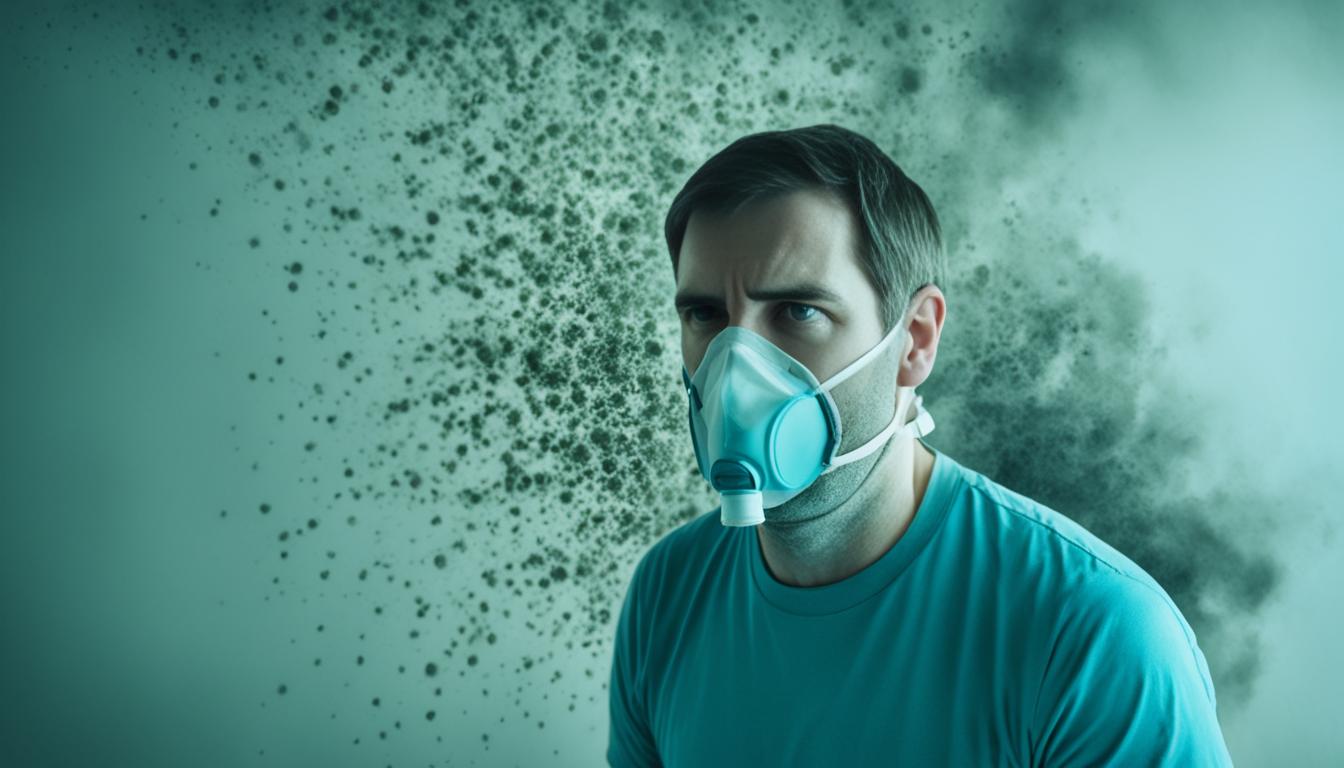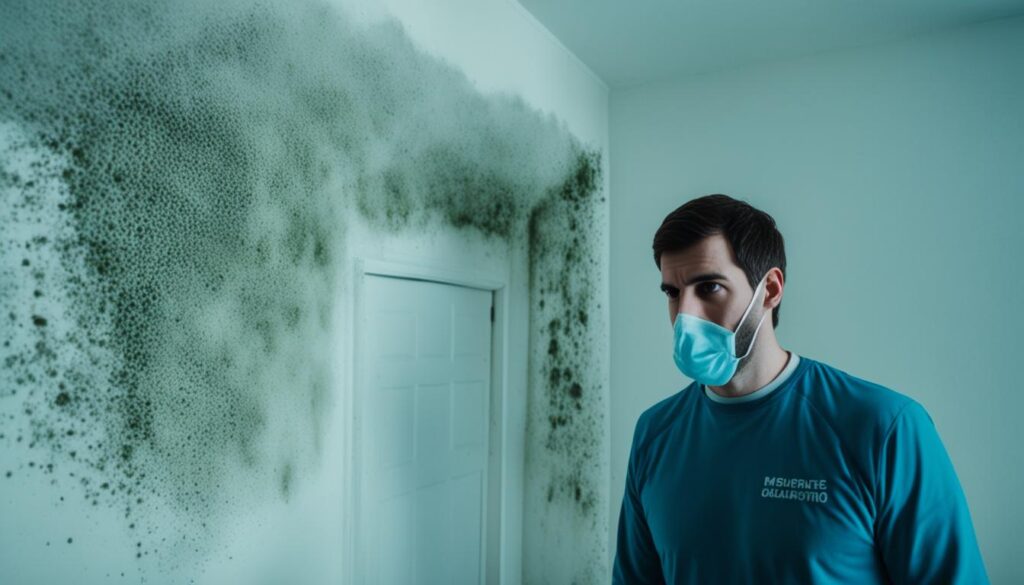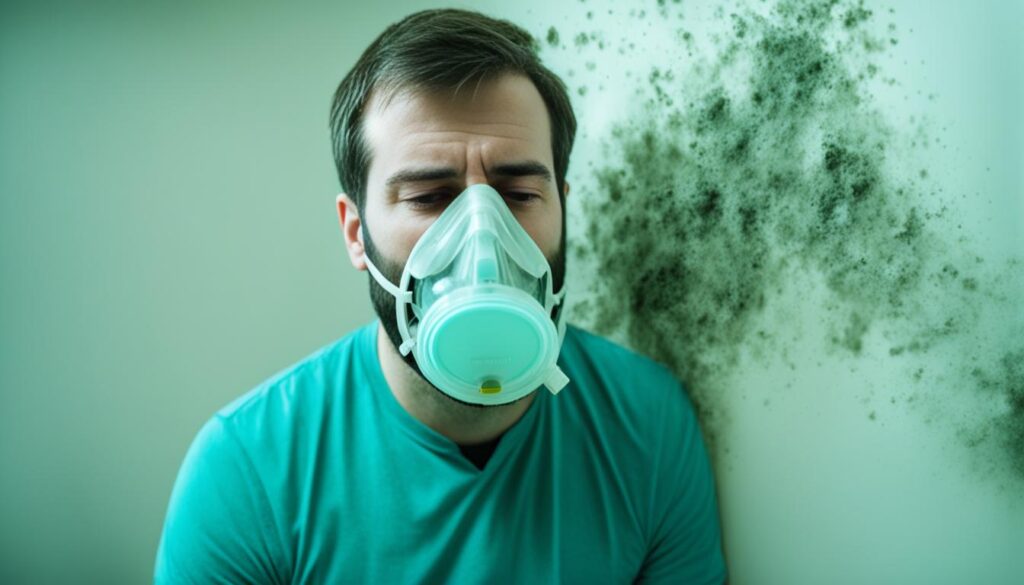
Health Risks of Mold Inhalation in Florida
Mold inhalation in Florida is a serious health concern that individuals living in this state should be aware of. Due to its warm and humid climate, Florida provides the perfect conditions for mold growth, both indoors and outdoors. Breathing in mold can have detrimental effects on respiratory health and overall well-being.
Key Takeaways:
- Mold inhalation in Florida can lead to respiratory health issues, allergies, asthma exacerbation, and respiratory infections.
- The warm and humid climate of Florida promotes mold growth, increasing the likelihood of encountering mold in indoor environments.
- Mold-related health issues are prevalent in Florida, emphasizing the importance of mold assessments, prevention, and remediation.
- Protect yourself from mold inhalation by maintaining proper ventilation, controlling humidity levels, and promptly addressing any moisture issues.
- Fix Mold Miami offers professional mold assessments, prevention, and remediation services in Florida. Contact them at 305-465-6653 to schedule a mold assessment.
Understanding Mold Inhalation and its Effects
When it comes to the effects of breathing in mold, it is crucial to understand the potential risks it poses to respiratory health. In Florida, where the warm and humid climate creates an ideal breeding ground for mold, individuals need to be aware of these risks and take proactive measures to protect themselves.
Mold inhalation can have various consequences on respiratory health, including:
- Allergies: Breathing in mold spores can trigger allergic reactions in susceptible individuals. Symptoms may include sneezing, congestion, itchy eyes, and skin rashes.
- Asthma Exacerbation: People with asthma may experience worsened symptoms when exposed to mold. This can lead to increased coughing, wheezing, chest tightness, and difficulty breathing.
- Respiratory Infections: Mold inhalation can also contribute to the development of respiratory infections, especially in individuals with weakened immune systems. These infections may manifest as bronchitis or pneumonia.
Furthermore, mold exposure can impact overall well-being beyond respiratory health. It can compromise the immune system, leaving individuals more susceptible to infections and illnesses. Prolonged exposure to mold may also cause fatigue, headaches, and general discomfort.
It is essential to recognize the signs of mold inhalation and take immediate action to minimize exposure. Regularly inspecting and maintaining indoor spaces, controlling humidity levels, and promptly addressing any water damage or leaks can help prevent excessive mold growth.
“Mold spores are tiny particles that can trigger allergic reactions and respiratory problems when inhaled.” – [Name, Title]
Comprehensive Guide to Mold Prevention
To effectively reduce the risks associated with mold inhalation, it is important to implement comprehensive mold prevention measures. By following these steps, you can create a healthier living environment:
- Control Humidity: Use dehumidifiers to maintain humidity levels below 50% and ensure proper ventilation in bathrooms and kitchens.
- Repair Water Leaks: Promptly address any water leaks or plumbing issues to prevent moisture buildup that fosters mold growth.
- Regular Cleaning: Thoroughly clean and dry areas prone to moisture, such as bathrooms and basements, to prevent mold growth.
- Proper Ventilation: Install exhaust fans in high-moisture areas and open windows to improve airflow and reduce condensation.
- Monitor Indoor Plants: Mold can grow in the soil and on the leaves of indoor plants. Keep plants clean and ensure proper drainage.
- Seek Professional Assistance: If you suspect mold growth or have had water damage, consider consulting a professional mold remediation service for assessments and remediation.

| Respiratory Health Risks | Symptoms |
|---|---|
| Allergies | Sneezing, congestion, itchy eyes, skin rashes |
| Asthma Exacerbation | Increased coughing, wheezing, chest tightness, difficulty breathing |
| Respiratory Infections | Bronchitis, pneumonia |
Mold-Related Health Issues in Florida
Living in a state with a warm and humid climate like Florida exposes individuals to unique health risks related to mold. The combination of high temperatures and moisture creates an ideal environment for mold growth, increasing the likelihood of encountering mold in indoor spaces.
Mold-related health issues are prevalent in Florida due to the abundance of mold spores in the air and the potential for mold infestations in homes, schools, and workplaces. The inhalation of mold spores can lead to various respiratory problems, allergies, and compromised immune systems.
Health Risks Associated with Mold Exposure
Mold inhalation can cause or exacerbate respiratory conditions, such as asthma and allergies. The inhalation of mold spores can trigger asthma attacks, resulting in symptoms like coughing, wheezing, and shortness of breath. Individuals with pre-existing respiratory conditions are particularly vulnerable to the health risks associated with mold exposure.
Moreover, prolonged exposure to mold can weaken the immune system, making individuals more susceptible to respiratory infections and other illnesses. Mold exposure may also cause a range of non-respiratory symptoms, including headaches, fatigue, skin irritation, and eye irritation.
According to the Centers for Disease Control and Prevention (CDC), exposure to mold can lead to upper respiratory tract symptoms, cough, and wheezing in otherwise healthy individuals, as well as other respiratory health issues.
Mold Assessments, Prevention, and Remediation
To mitigate the mold-related health risks specific to Florida, it is essential to prioritize mold assessments, prevention, and remediation. Conducting regular mold assessments in residential and commercial buildings can identify the presence of mold and its potential sources, allowing for prompt remediation before the situation worsens.
Implementing effective measures to prevent mold growth, such as maintaining proper ventilation, controlling moisture levels, and promptly addressing water leaks or humidity issues, can significantly reduce the risk of mold-related health problems.
When mold infestations occur, it is crucial to enlist professional mold remediation services to ensure safe and thorough removal of mold. Professionals use specialized equipment and techniques to eradicate mold, preventing further exposure and minimizing the chances of recurring mold issues, thus safeguarding the health and well-being of individuals.
Mold Awareness for a Healthy Environment
Raising awareness about mold-related health issues is vital in Florida. Educating individuals about the health risks associated with mold exposure and the importance of mold assessments, prevention, and remediation can empower them to protect their health and create a safer indoor environment.

By taking proactive measures and staying informed, Floridians can safeguard their well-being and contribute to a mold-free and healthy living environment for themselves and their communities.
Conclusion
Throughout this article, we have explored the health risks associated with mold inhalation in Florida. The warm and humid climate in the state creates the perfect conditions for mold growth, making it crucial for individuals to be aware of the potential dangers.
By breathing in mold, individuals may experience a range of respiratory health issues, including allergies, worsening asthma symptoms, and respiratory infections. Mold exposure can also impact the immune system and overall well-being.
It is essential for Floridians to take proactive measures to protect themselves from mold-related health risks. This includes regular mold assessments, prevention strategies, and timely remediation of any mold issues. Fix Mold Miami is a reputable resource that offers comprehensive services in mold assessments, prevention, and remediation, ensuring a safe and healthy living environment in Florida.
If you would like more information about mold assessments or need to schedule a mold assessment, contact Fix Mold Miami at 305-465-6653. Don’t compromise on your health and well-being – take action to protect yourself from the dangers of mold inhalation in Florida.




